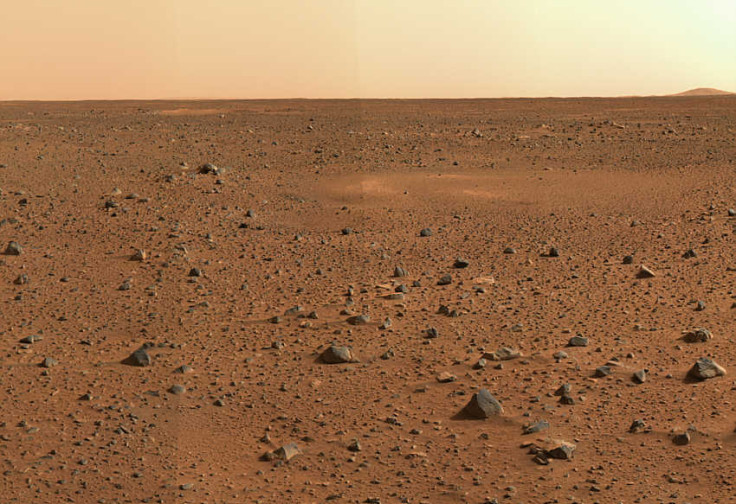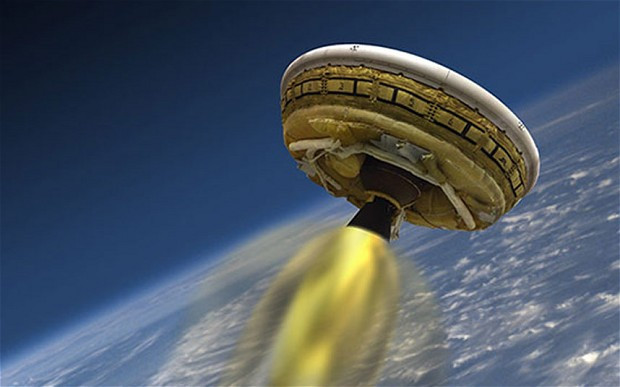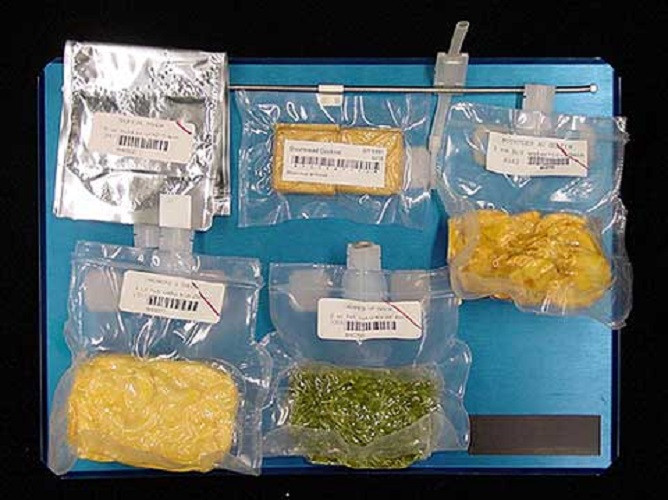Biological Waste to Transform Long-Duration Space Travel and Colonisation of Mars

Biological waste can be used to create fuel, food and drugs on long-duration space missions, scientists have said.
In a study published in the Journal of the Royal Society Interface, scientists looked at how natural and engineered organisms could be utilised for long-term space missions, like those currently being planned to Mars.
Currently, abiotic (non-biological) technology is mostly used for space travel. However, using "artificially-enhanced biological manufacturing strategies" could result in huge cost savings and improved resources during these trips.
Study author Amor Menezes, from the California Institute for Quantitative Biosciences
University of California, Berkeley, said their findings address two key problems with space travel – the cost and astronaut health.
Commenting on the latter, he told IBTimes UK: "Drugs expire faster in space than on Earth due to space radiation, and so the ability to manufacture drugs in space in near real-time is very important. Traditional chemical manufacturing techniques are fast and cheap of course, but these benefits are achieved because of a large-scale that would be tremendously massive to deploy, and also wasteful in a space setting since only small quantities of an active drug ingredient are often required.
"The current thinking is that drugs and other short-lived supplies will have to be shipped on an as-needed basis to astronauts in a medical emergency, which is very expensive, and could also endanger astronauts if the supplies do not arrive in time."

Researchers compared some of the abiotic technologies being developed with biological ones against current space travel objectives. They found the biological technologies were not only as effective, but cheaper.
Resources that could be utilised in space include carbon dioxide, nitrogen, hydrogen and oxygen – the subset of the main elements required for life. "Carbon dioxide makes up more than 95% of the Martian atmosphere, with nitrogen being another almost 3%. There are polar ice caps on Mars too."
Providing examples of how these resources could be used to make fuel and food, Menezes pointed out that it is thought that fuel will make up about two thirds of the mass of a mission to Mars and back.
Currently, experts are hoping to create a methane-oxygen fuel from the available CO2. However, the researchers said their method would be more cost effective: "What we showed is that by substituting a known biological process (and its necessary ingredients) to generate the methane-oxygen fuel blend from carbon dioxide, we can potentially reduce both the mass of the required apparatus as well as the amount of feedstock that is required."

In terms of food, Menezes said their findings would likely result in a bigger variety and better tasting menu for the astronauts. Nutritious dry food that contains a biomass like Spirulina, which is produced using CO2, hydrogen and nitrogen, would take up less space on board and would be a viable option on all long-term space missions. "Most importantly, synthetic biology can also improve the variety of textures and flavours of the biomass, so that the dry-food is palatable for the astronauts."
While these biological technologies are still a long way off, so too is long-duration space travel, Menezes noted. However, once developed, there is no reason they could not be used to colonise Mars.
"If biological technologies perform successfully once they are deployed on long-duration space missions, then it should also be possible to adapt them to support more permanent expeditions and colonisation efforts. After all, bacterial spores and rock-colonising eukaryotes are known to survive with little protection in space for between one-and-a-half and six years, so it's conceivable that any designer bacteria and their progeny will continue to be useful in space if suitably protected.
"However, we still have to experimentally prove these technologies in simulated space settings, and we need to confirm that the biological technologies are 'safe' for both the astronauts and the extraterrestrial destination with suitable containment efforts."
Concluding, he added: "Our analysis indicates that it [biological technologies] has a good chance of being a disruptive space technology, by providing substantial savings over current techniques. Instead of discounting biological technologies in space outright, we are arguing for experimental work in this new area to confirm our analysis."
© Copyright IBTimes 2025. All rights reserved.






















